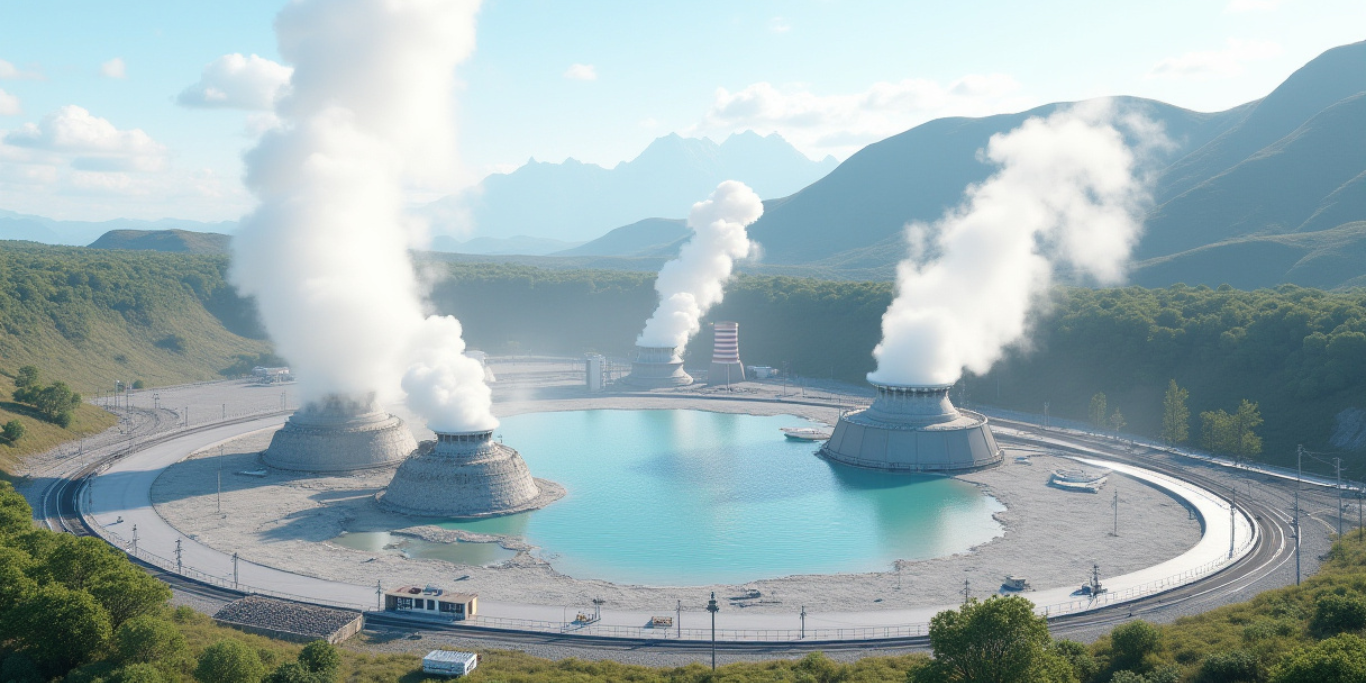Geothermal Energy: The Key to Clean and Renewable Power
As the demand for renewable energy grows, geothermal energy is emerging as a viable and sustainable solution. This natural energy source harnesses heat from the Earth’s core to generate electricity and provide heating solutions. In this article, we will explore what geothermal energy is, how it works, and its advantages and disadvantages.
What Is Geothermal Energy?
Geothermal energy is a renewable energy source derived from the Earth’s internal heat. This heat is produced by the natural decay of radioactive elements and the residual heat from the planet’s formation. Geothermal energy is harnessed through various technologies, including geothermal power plants and direct-use applications for heating and cooling.
How Does Geothermal Energy Work?
Geothermal energy is captured by drilling wells into the Earth’s crust to access underground reservoirs of hot water and steam. These resources are then used to generate electricity or provide direct heating. The three main types of geothermal power plants include:
- Dry Steam Plants – Use steam directly from underground reservoirs to power turbines.
- Flash Steam Plants – Convert high-pressure hot water into steam to drive turbines.
- Binary Cycle Plants – Transfer heat from geothermal fluids to a secondary liquid that turns into vapor and powers turbines.
Advantages and Disadvantages of Geothermal Energy
Understanding the advantages and disadvantages of geothermal energy is essential when considering it as a renewable energy source.
Advantages
- Renewable and Sustainable – Unlike fossil fuels, geothermal energy is naturally replenished by the Earth’s heat, making it a long-term energy solution.
- Low Carbon Emissions – Geothermal energy produces minimal greenhouse gas emissions compared to coal or natural gas.
- Reliable and Consistent – Unlike solar and wind energy, geothermal power is available 24/7, regardless of weather conditions.
- Cost-Effective in the Long Run – After the initial setup costs, geothermal energy systems have low maintenance and operational expenses.
- Versatile Applications – Can be used for electricity generation, residential and commercial heating, and even industrial processes.
Disadvantages
- High Initial Costs – Drilling and infrastructure development require significant investment.
- Location-Specific – Geothermal energy is most effective in areas with high geothermal activity, such as Iceland, the Philippines, and parts of the U.S.
- Potential Environmental Impact – While generally low, geothermal projects can cause land subsidence and minor seismic activity.
- Resource Depletion Risk – If not managed properly, some geothermal reservoirs can cool down over time, reducing efficiency.
- Water Usage – Some geothermal plants require large amounts of water for operation, which can be a concern in arid regions.
How Geothermal Energy Compares to Solar Energy
While geothermal energy provides a consistent and sustainable power source, solar energy remains one of the most widely adopted renewable energy solutions worldwide. Solar panels convert sunlight into electricity, offering a clean and scalable option for homes and businesses.
Benefits of Solar Energy
- Widely Accessible – Unlike geothermal energy, solar panels can be installed in almost any location with sufficient sunlight.
- Low Maintenance Costs – Once installed, solar panels require minimal upkeep and have long lifespans.
- Government Incentives – Many countries offer tax credits and rebates for solar panel installations, making them an attractive investment.
For those looking to explore solar energy solutions, check out our range of products designed for residential and commercial use.
The Future of Geothermal Energy
As technology advances, geothermal energy is expected to play an increasing role in the global transition to sustainable energy. Enhanced geothermal systems (EGS) and new drilling techniques are making geothermal power more accessible and efficient.
Conclusion
Geothermal energy offers a clean, sustainable, and reliable power source, making it an excellent alternative to fossil fuels. However, factors like high initial costs and location dependence must be considered. For those exploring renewable energy options, solar energy may be a more accessible solution.
Interested in learning more about renewable energy solutions? Contact us today to find the best option for your energy needs!
Stay Updated with the Latest Renewable Energy News
Want to stay informed about the latest trends, innovations, and updates in the world of renewable energy? Visit our blog for insightful articles, industry news, and expert insights to help you make the best energy choices for your future!










